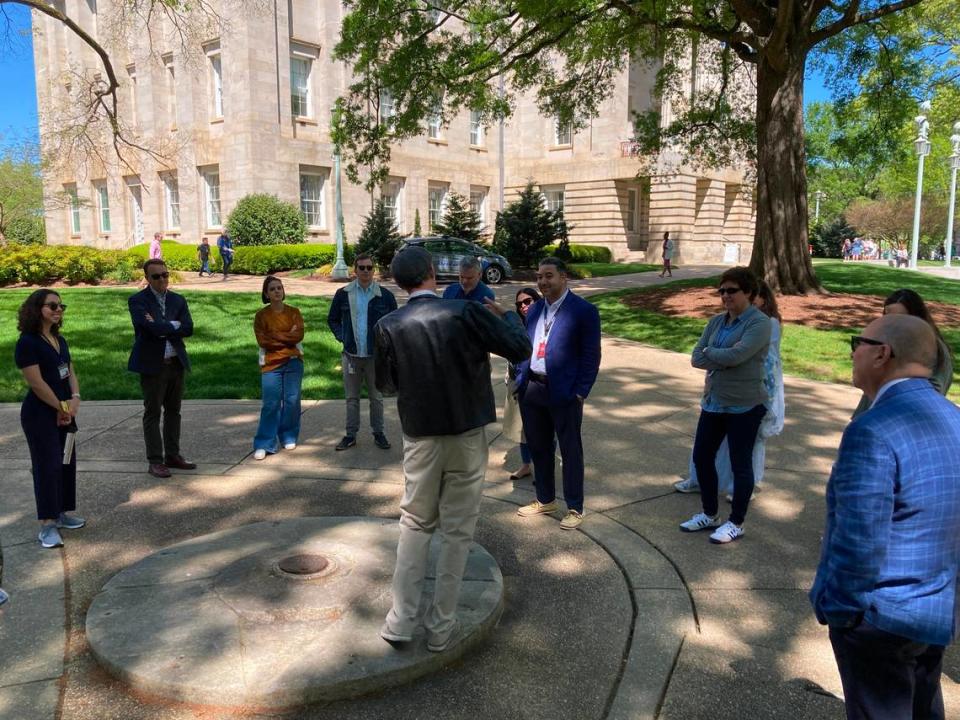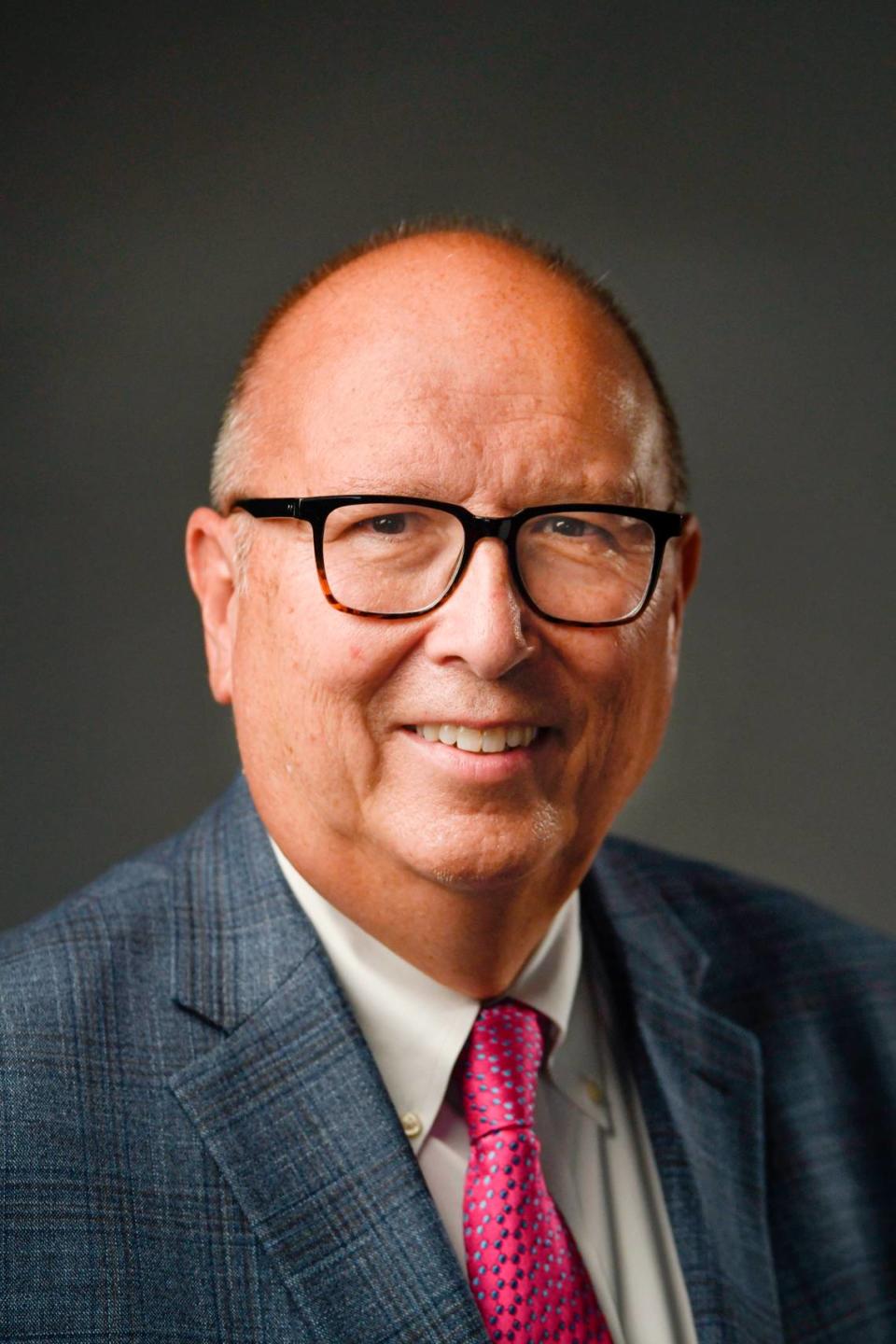Raleigh has a storied history, and Ernest Dollar doesn’t miss a fascinating detail
Face-to-face with a legion of journalists — a regiment not known for outbursts of laughter — Ernest Dollar took on the battle, and won.
There he was on this Tuesday, surrounded by News & Observer journalists under a shady tree, just steps from the North Carolina State Capitol.
To the south loomed Gen. William T. Sherman and his troops. Would Raleigh be saved or face the fate of other Southern capitals? (Spoiler alert: The only destruction I witnessed were two locked-up, crusty drinking fountains with no bubbly power.)
To the north lurked the threat of Capitol grounds security shooing him away — because this public park of monuments and historic wells apparently is no place for competing tour groups.
Dollar persisted in his theater-in-the-park storytelling while furtively glancing back (in case Capitol security showed up). How then-Gov. Zebulon Vance sought a peaceful transition before Sherman’s arrival. How a renegade cavalryman historically links the Executive Mansion and Oakwood Cemetery. How Union Gen. John Logan’s quick actions, after President Lincoln was assassinated, stopped retaliations from his troops — therefore landing him a spot in the Raleigh Hall of Fame (which apparently is a thing).
‘An incredible place to visit’
Think Bill Nye for history buffs, add your favorite howdy-neighbor guy who volunteers for everything, and you’ve got the earnest, easygoing and ever-busy Dollar. He is executive director of the City of Raleigh Museum and Pope House Museum, an author, and occasional history re-enactor.
Check out this quote from a Walter magazine profile as Dollar describes his interest in preserving Raleigh’s history: “There’s a lot more to Raleigh than being a government town. An incredible community has lived here for over 200 years. The past is an incredible place to visit and it’s still with us today.”
If you’re visiting downtown Raleigh and have 30 minutes to spare, the City of Raleigh Museum will give you back 5-10 minutes. It’s a small, one-floor tour, but the exhibits connect visitors with relevant issues, from the civil rights movement to the important role of women in shaping the city. Plus, there’s a gift shop.
Spend time with the museum maps because it explains Raleigh’s significance as the country’s only planned capital. City founders may not have thought about platting a downtown hockey arena, but they understood the city-state relationship and how parks could become gathering places.
Even if you only have 5-10 minutes, step inside the museum and marvel at the bones of the Briggs building. Or glance at the sidewalk sign, which routinely features a hand-scribbled history lesson of the day.

Give Dollar his due. He’s a consistent currency. Eight years ago this week, at a similar spot where The N&O tour group landed, Dollar posed as a major in the Union Army, again blending theatrics with charming facts. He led a tour group of 50 through similar stories on how the Civil War ended in Raleigh with the city somewhat unscathed.
Gen. Sherman and barbecue
N&O reporter T. Keung Hui chronicled the 150th anniversary event in 2015, which included a reception by the North Carolina Civil War & Reconstruction History Center. The charm about reenactments is we get to hear from Sherman (sort of) on why he thought Raleigh was special.
“Raleigh, I didn’t burn it,” said Sherman, played by actor Ira David Wood III, during the 150th anniversary event in 2015.
“You want to know why? Barbecue.”
Thanks, Sherm.
Maybe the general wasn’t thinking about ribs and chopped pork 158 years ago.
But I bet our Dollar knows.
Bill Church is executive editor of The News & Observer. He now pays attention to the Andrew Johnson marker on Fayetteville Street.


